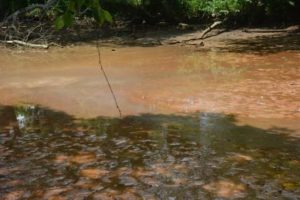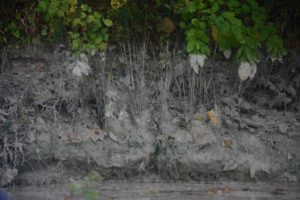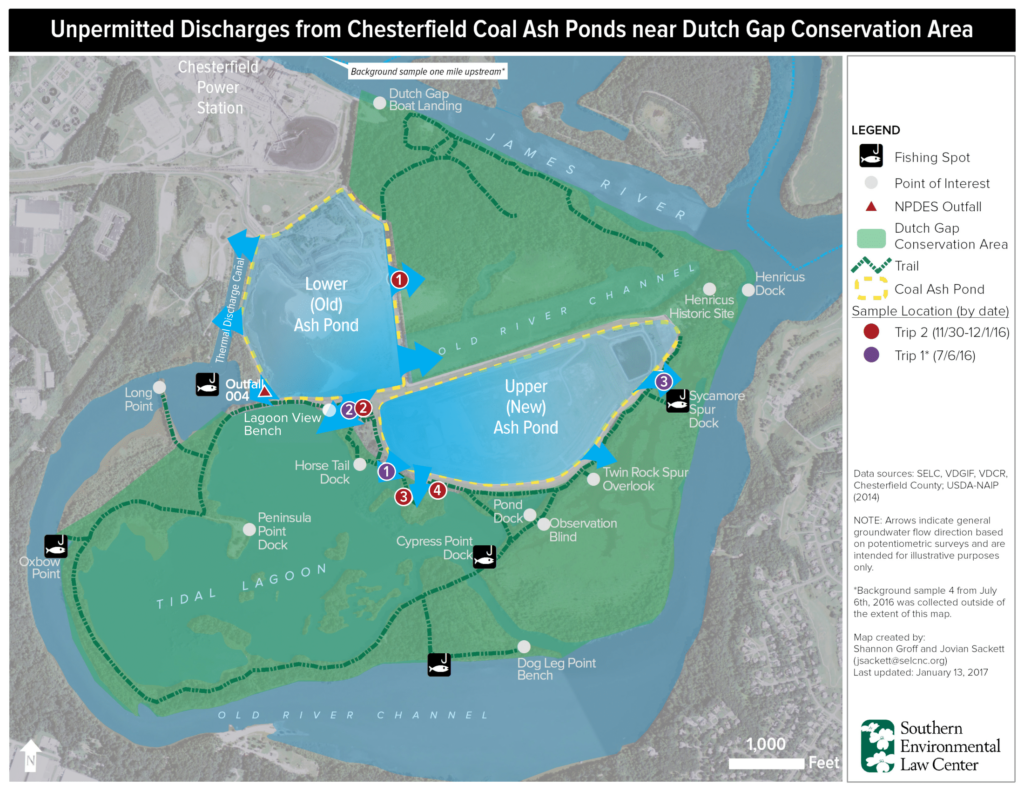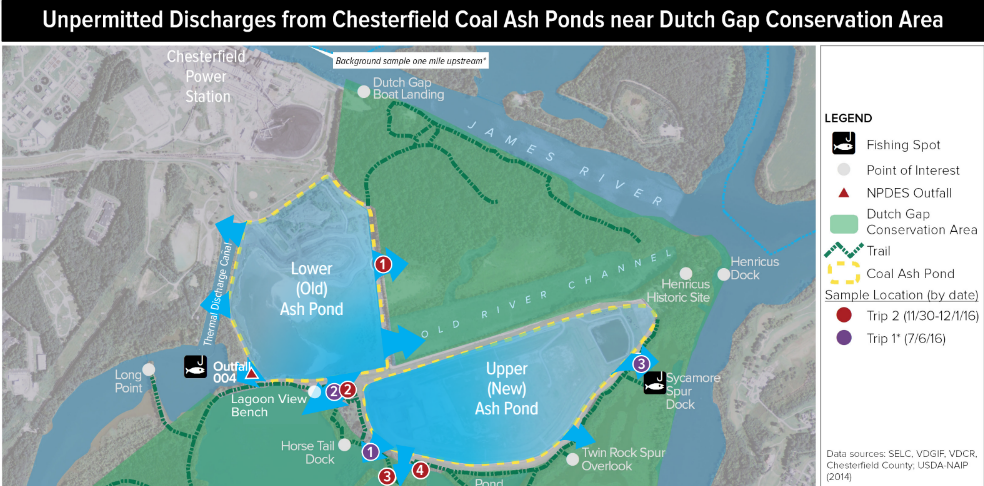
Polluted water is visible seeping into cove abutting Chesterfield Power Station.
Two separate rounds of water and sediment testing conducted by the James River Association and Southern Environmental Law Center have identified toxic chemicals associated with coal ash seeping into public waterways at Dutch Gap Conservation Area. Samples collected in July and December of 2016 revealed elevated levels of toxic pollutants such as arsenic, lead and chromium, among others.
More than 13 million tons of coal ash is stored in unlined earthen ponds at Chesterfield Power Station, which abuts Dutch Gap Conservation Area and the Henricus Historical Park. The new monitoring data suggests that coal ash ponds at Chesterfield Power Station have been leaking for some time, with arsenic levels in soil measured at 400 times the level considered safe, according to EPA risk assessment criteria.
Virginia’s current solid waste permit procedure will allow these ponds to receive closure permits before contamination problems are fully investigated and understood. This process would allow power generating companies to begin spending money on hastily developed “closure” plans that may not work, wasting money and wasting time, while these toxins continue to pollute our waters. In order to find a long-term solution for these leaking coal ash ponds, problems must be well understood at the outset of the closure process.

Coal ash waste covers shoreline and vegetation adjacent to Chesterfield Power Station.
A solution to ensure these coal ash ponds are closed safely and properly has been proposed in the 2017 General assembly. Senate Bill 1398 will make important modifications to the solid waste permitting process, by requiring assessment of pollution problems and corrective measures prior to issuance of a solid waste permit. Join our action network today to stay informed, and to add your voice in helping to protect the James River.


